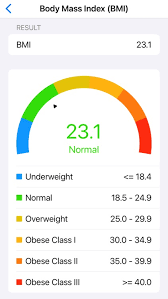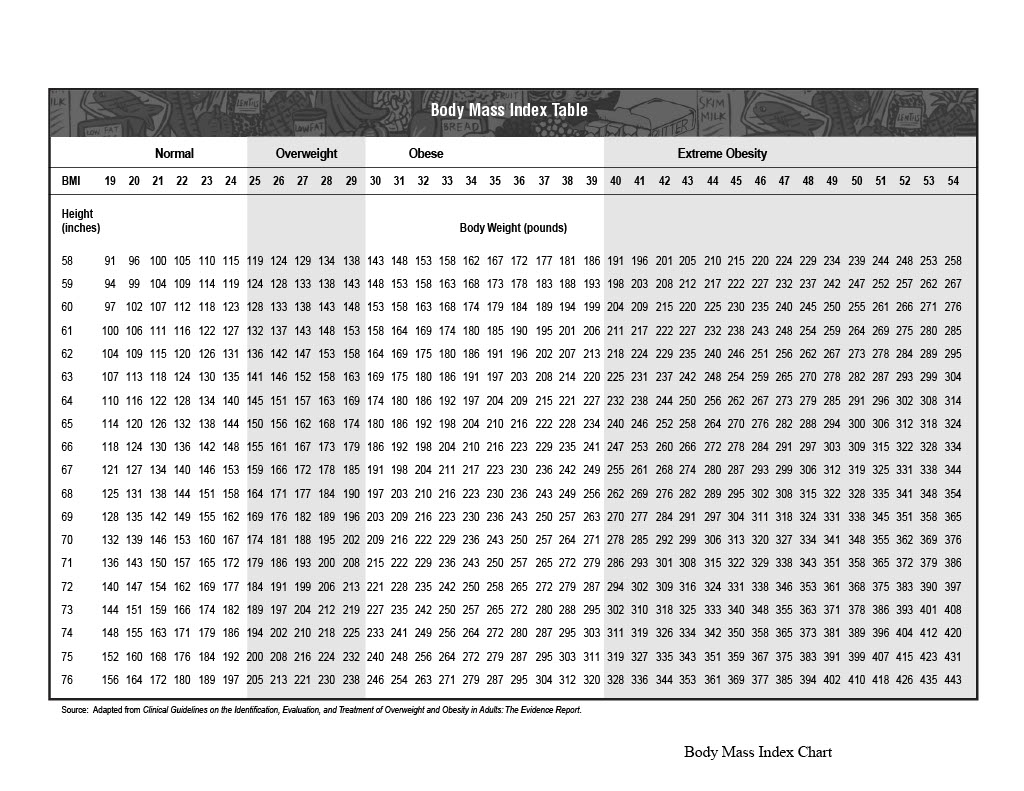If you’re trying to understand your body mass index (BMI) and how it affects your overall health, you’re not alone. Both men and women want to know whether they are overweight or obese. It helps them decide on a diet plan. Our free bmi calculator helps you do that. The index is a measure of the ratio of your weight to your height. It is used to determine whether you are underweight, normal weight, overweight, or obese. Use our body mass index calculator to help figure out your correct body mass index. You can easily calculate your BMI and interpret the results in order to make any necessary lifestyle changes. Remember to consult with a doctor or health professional if you have any questions or concerns about your weight or score.
Understanding Your Body Mass Index and How to Use the Free BMI Calculator
What is Body Mass Index (BMI) and Why is it Important?
Body Mass Index (BMI) is a measure of body fat based on height and weight that applies to both adult men and women. It is used to determine whether an individual is underweight, overweight, or has a healthy weight. Body fat is an important indicator of overall health. It can help identify individuals who are at risk for certain diseases and conditions such as diabetes, heart disease, and stroke. Knowing your normal BMI can also help you make informed decisions about your diet and exercise routine to maintain a healthy weight. By using a BMI calculator, adults can calculate their body fat percentage to better understand their overall health. With the bmi calculator women and men will benefit.
How to Calculate Your BMI with our Free BMI Calculator

Knowing your Body Mass Index can help you understand your overall health. With a free BMI calculator men and women can easily calculate their BMI and determine whether they are underweight, normal, overweight or obese.
A BMI calculator is a simple online tool that allows you to quickly calculate your body fat percentage and identify how healthy or unhealthy your weight is. By entering in the required information such as height and weight, the calculator will provide an accurate reading of your BMI. This can then be used to make informed decisions about diet and exercise plans tailored to maintain a healthy lifestyle.
What Does Your BMI Mean? Interpreting the Results of the BMI Calculator
Body Mass Index is a score used to measure and assess the amount of body fat a person has. It is calculated by dividing your weight in kilograms by your height in meters squared. Knowing your score can help you understand if you are at a healthy weight range, and if not, what steps you need to take to get there. Let’s discuss what your BMI results mean, including healthy weight ranges for both men and women, as well as ideal weight ranges for each gender. Let’s also look at how BMI can be used to identify potential health risks associated with being overweight or underweight. With this information, you’ll be able to make informed decisions about how to maintain or improve your health.
The Pros & Cons of Using an Online BMI Calculator vs. In-Person Measurements

Knowing your Body Mass Index is an important part of staying healthy. But it can be hard to figure out what your BMI is without the help of a professional. That’s why many people choose to use online BMI calculators instead of in-person measurements. But how accurate are these online calculators? What are the pros and cons of using them? You can explore the advantages and disadvantages of using an online BMI calculator compared to in-person measurements.
Importance of Body Mass Index?
Body Mass Index (BMI) is an important measure of your body composition, which reflects the relationship of your weight to your height. To accurately calculate your BMI, you need to know your weight and height. Once you have that information, you can follow the formula of dividing your weight (in kilograms) by your height (in metres squared) to get an indication of your overall body mass. It’s important to note that BMI is solely a measure of relative body mass, not a measure of body fat or muscle, and does not take potential health risks into account like age, sex or cultural background, so it should be used in conjunction with other metrics for a more accurate understanding of overall health.
It is calculated by dividing your body weight in kilograms by the square of your height in meters, and can tell you if you are at a healthy weight for your height. Body mass is an important indicator of overall health, as people who are overweight are more likely to have health problems such as diabetes, heart disease, and stroke. It’s important to maintain a healthy body mass through regular exercise and a sensible diet. Regular physical activity can help keep your weight in the normal range, while helping you reduce stress, increase energy levels, and improve your quality of life.
Your BMI score can help you
Your BMI score can help you develop a healthier lifestyle through diet and exercise, as well as identify any potential health issues such as obesity and underweight conditions that could affect your overall health All in all, knowing your body mass index is key to understanding your overall health. Calculating your BMI score is easy, you can use online calculators or work it out with the simple formula of weight divided by height squared. This score can then be used to help you develop a healthier lifestyle through diet and exercise and identify any potential health issues such as obesity or underweight conditions.
How Body Mass Index is Calculated
Calculating Body Mass Index (BMI) is a simple way to assess whether your body weight is within the healthy range. BMI is a formula that takes into account both your height and weight to determine if you are in a healthy range. It is important to use the formula correctly in order to get an accurate understanding of whether your body mass index is within a healthy range. Additionally, individuals should also consider their body fat percentage, age, and gender when assessing their overall health and well-being. While BMI does provide good insight into one’s body mass, it should always be used in conjunction with other assessments for the most accurate results.
It’s important to remember that 1 kg is equal to 2.2 pounds, and 1 metre is equal to 3.3 feet Thereafter, bmi can be calculated by dividing your weight in kilograms (kg) by your height in metres squared (m2). Calculating bmi is a good way to determine whether one’s body mass is in a healthy range or not.
Normal BMI Ranges
Normal BMI ranges depend on age and gender – for instance, a healthy BMI range for an adult male is 18.5 to 24.9, whereas for an adult female it’s between 16.5 to 24.9. Understanding bmi and its associated ranges is essential to maintaining a healthy lifestyle. Body mass index (BMI) is a simple calculation derived from a person’s weight and height, and is an indicator of body fatness.
BMI helps to identify if an individual is at risk for health conditions such as heart disease, diabetes, and stroke. Generally, bmi values between 18.5 to 24.9 are considered healthy, while bmi readings greater than 25 are considered overweight and bmi values lower than 18.5 are identified as underweight. It is important to remember that bmi is only one way to measure health, however it can provide some insight into a person’s overall health and well-being.
Knowing your normal BMI range is important as it can help you gauge whether or not you are at a healthy weight, and if you need to make lifestyle changes in order to reach this goal Besides knowing your body mass index (BMI) range, it is important to understand that this range can help you determine if your weight is healthy or not. Moreover, it provides insight into what lifestyle changes may be necessary to reach a healthy body mass. Therefore, having awareness of body mass and BMI can be an invaluable resource for living a healthier lifestyle.
Understanding Your BMI Results
BMI, or body mass index, is a number that is calculated from your height and weight to give an indication of your health – it’s important to understand how to interpret your results. Calculating your BMI is simple and involves taking your weight in kilograms and dividing it by your height in metres squared. If the resulting number falls between 18.5 – 24.9 it is considered a healthy range, 25-29.9 is considered to be overweight, and 30+ is considered to be obese. It should also be noted that how you interpret these results can vary depending on your age, gender and ethnicity, so it’s important to talk to a medical professional if you have any questions or concerns related to how you calculate bmi.
BMI Scores that are Considered Healthy
Your BMI result can be categorized as underweight, normal weight, overweight or obese. These categories are based on the range of BMI scores that are considered healthy for adults. The body mass index ( BMI ) is a measure of body fat based on height and weight that applies to both adult men and women. Generally, a BMI of 18 to 24.9 is considered normal weight, 25 to 29.9 is considered overweight, and 30 or higher is considered obese. If you’re in any of these categories, talk with your health care provider about strategies to help you reach and maintain a healthy body weight.
Understanding your BMI result can help you make informed decisions about your health and lifestyle choices that can help you reach and maintain a healthy weight for your body type. Meanwhile, understanding how body mass index is calculated and what your BMI result means can be a great way to help you make informed decisions about your health and lifestyle choices that can help you reach and maintain a healthy weight for your body type. Having a better understanding of body mass and BMI can be beneficial in managing long-term health and wellness.
Factors That Affect Your BMI
When it comes to understanding your BMI, it’s important to consider the various factors that can play a role in determining your body mass. These factors include things such as your age, gender, lifestyle habits, and even your genetics. It is possible to calculate your body mass index (or BMI) with a formula that takes into account your weight, height, and age. This formula provides a useful general indicator of whether you are at a healthy body mass, under- or overweight, or even obese. It’s worth noting however that the formula for body mass index does not take into account different body types as well as muscle mass versus fat mass, so it should not be used as the only measure for assessing health.
It’s also important to understand how these factors interact with each other and how they can influence how much of an effect they have on your overall BMI. For example, if you lead an active lifestyle but have a family history of obesity, that could have an effect on your BMI regardless of the amount of exercise you get Finally, it is important to remember that the relationship between body mass index and other factors is complex. It’s important to be aware of how lifestyle, genetics, age and gender can all interact with each other and influence your overall BMI. Even if you lead an active lifestyle, there may be other factors at play such as a family history of obesity which can also have an effect on your BMI.
Body Mass Index Chart
If you don’t want to use the free BMI calculator you can use the body mass index chart below. The BMI chart shows your height on the left and your body weight in the middle. The top of the chart indicates whether your BMI is normal or whether you are considered overweight, obese or extremely obese.

Benefits of Maintaining a Healthy Weight
Maintaining a healthy body weight has been linked to numerous health benefits, including a reduced risk of chronic diseases like Type 2 diabetes, heart disease and certain types of cancer. One way to evaluate the impact of body weight on health is to calculate your body mass index (BMI). BMI is a simple calculation based on height and weight that allows you to identify if an adult falls within a healthy range or have an unhealthy amount of body weight. To calculate your BMI, divide your weight in kilograms by the square of your height in meters. Knowing your BMI can help you make lifestyle changes, such as eating healthier and exercising more, that will help you reach and maintain a healthy body mass.
Research suggests that maintaining a healthy weight can also improve energy levels, mood and sleep patterns, as well as reduce inflammation in the body. To determine a healthy weight, body mass index (BMI) is used to measure a person’s relative size based on their height and weight. It then classifies those numbers into four categories – underweight, normal, overweight and obese. Studies have shown that meeting the criteria of a healthy BMI can reduce the risk of many health issues such as heart disease and diabetes, as well as help improve overall quality of life.
Other benefits include improved immunity, better digestion and even improved fertility for those trying to conceive Thereafter, it is clear that maintaining a formula for body mass index is important as it can provide a host of benefits. These include improved immunity, better digestion and even improved fertility for those trying to conceive. Ultimately, having an understanding of one’s body mass index formula is a positive step that should be taken to promote overall health.
